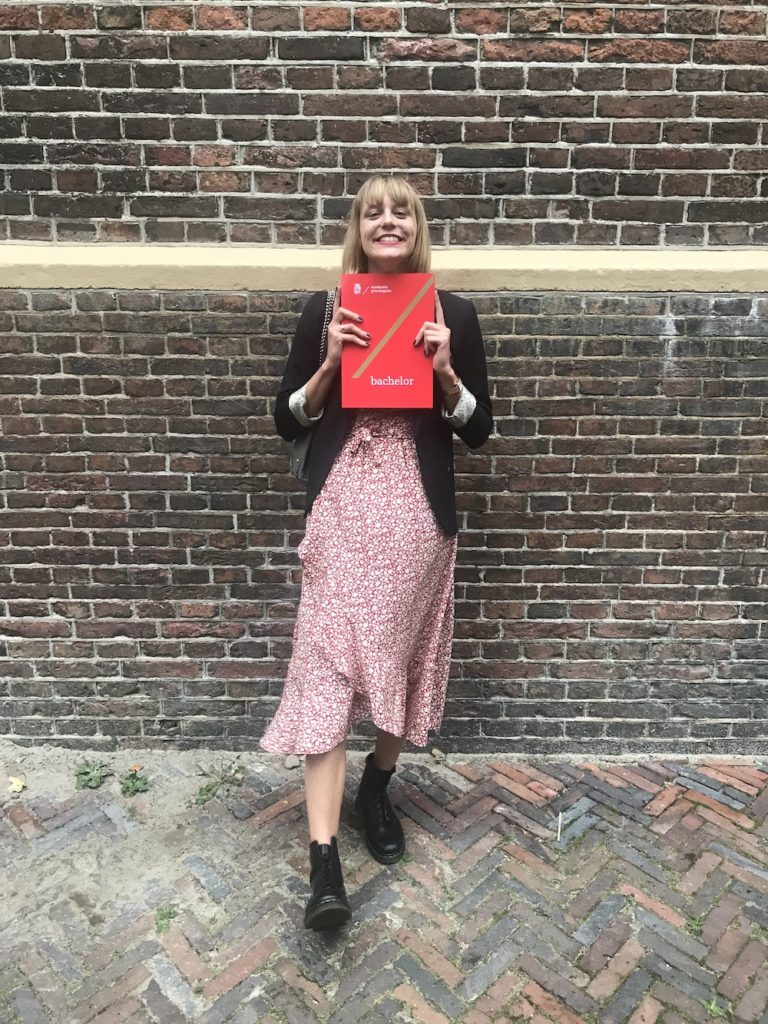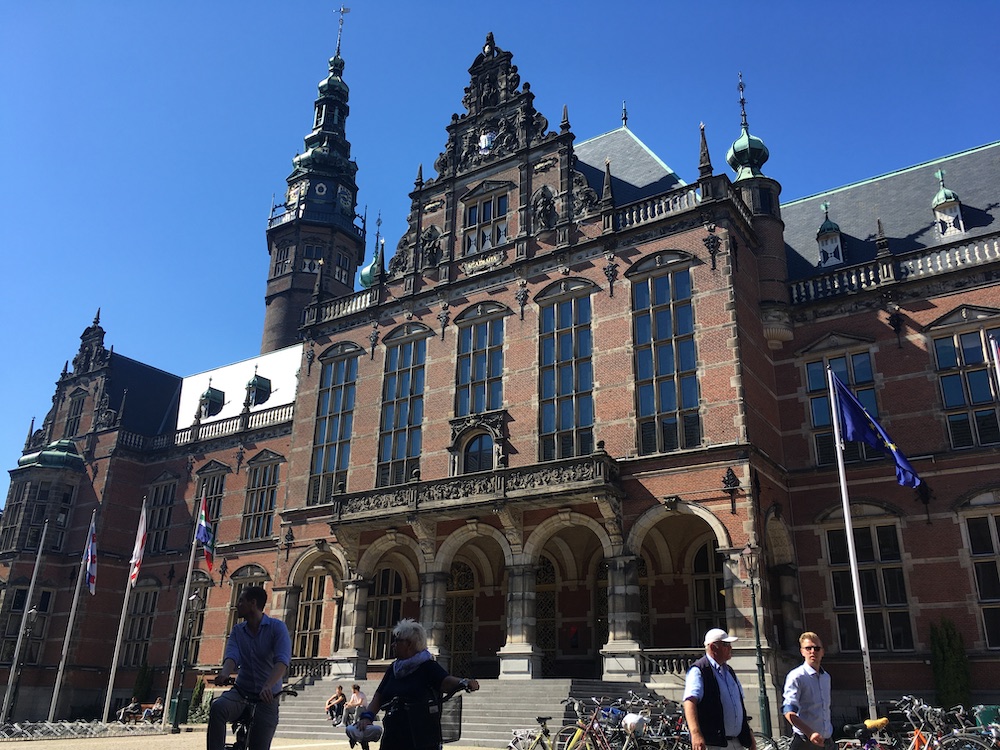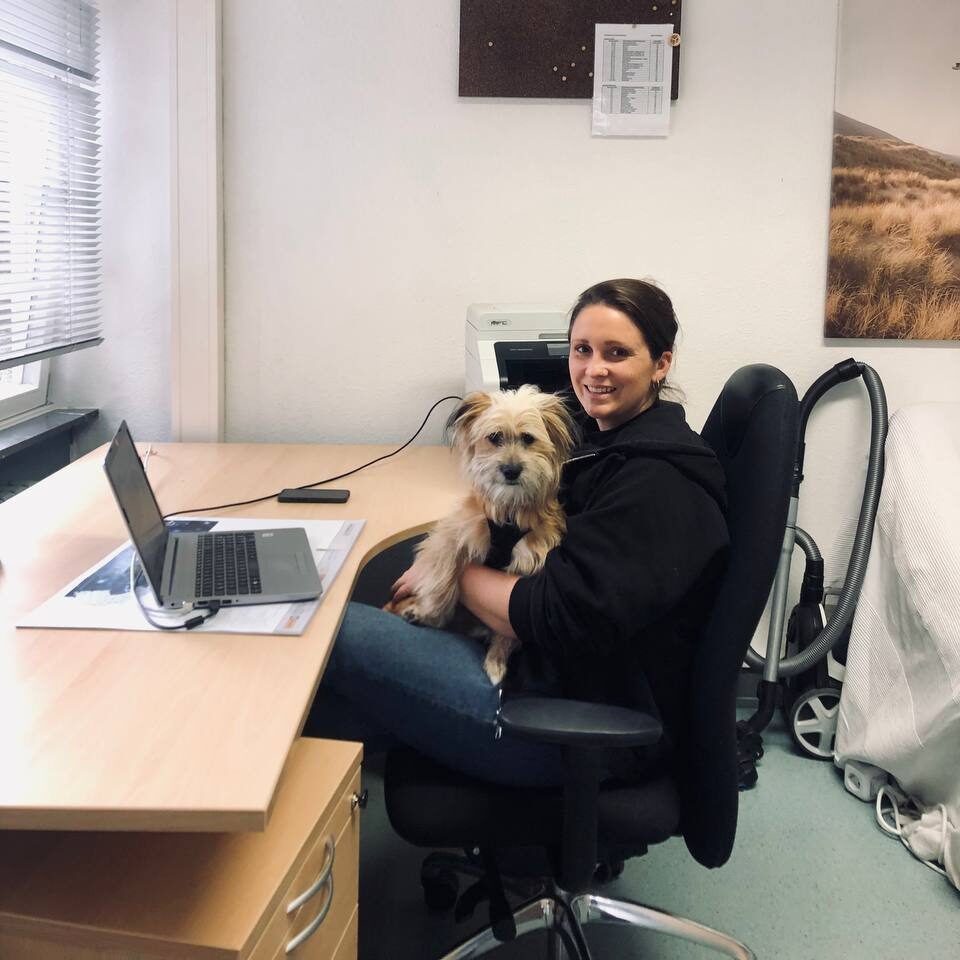
Studying in the Netherlands – Deike’s #afterschoolstory
What is it actually like to study abroad? This week, Deike (23 years old) tells you about her studies abroad, the bright sides and the dark sides, and some nice-to-knows, especially in relation to studying in the Netherlands. She moved to Groningen, the Netherlands, to live and study for her bachelor’s degree. Now she is continuing her studies there with the master’s programme “Applied Social Psychology”.
Why study in Groningen?
At the time, I decided to study here for three simple reasons:
• In the Netherlands, Bachelor’s degree programmes are NC-free.
• The Rijksuniversiteit Groningen is in the top 100 in the ranking of the best universities, the university charts so to speak.
• Groningen is relatively close to my home and was on my radar for that reason alone.
intombi for girls – how you can be part of it!
👉 We are also interested in your story! Every week in our #girlsforgirls online passion magazine, we introduce you to exciting and super strong young women, projects and important tips, all about a passion. We call this week – PassionWeek! 🤩 For a successful start into the future – according to our motto #girlsforgirls !👭💕🌍 Contact us and become the author of your life story – info@intombi.de
Finances, language, accommodation and much more – you should be prepared for this when studying abroad:
However, studying abroad also brings challenges. These include, above all, studying and everyday life in another language, but also very basic things such as financing your studies (in contrast to Germany, in many countries you still pay tuition fees, in others the state pays extra for your studies), finding a flat or new bureaucratic matters.
In the case of the Netherlands, there is also a different grading system and a different semester division. Whereas in Germany there are two semesters with usually two examination phases, in the Netherlands there are four blocks, each with one examination phase. In addition, there is an apparent lack of semester breaks, as universities only have them in the summer.
Challenges are also opportunities
Both your English and Dutch will improve significantly during this time if you make the effort. Networking with fellow students from all over the world is also enormously helpful for both personal growth and professional contacts. You grow immensely with bureaucratic problems anyway.

These 7 tips will help you keep a cool head with all the new impressions at your new place of study:
1. Be aware that each country and each university has its own systems and rules. Therefore, start learning about the university system in the country of your choice early on. The websites of most universities have a complete tab on the topic of “foreign students”. In many countries, for example, you apply for your place at university in the spring.
2. Pay attention to the amount of the tuition fees!
3. Take a language course. My university, for example, offers free Dutch courses up to B1 level.
4. Watch series in English or the language you want to learn in advance.
5. Look for offers for first-year students, introductory weeks and leisure activities.
6. Join Facebook groups, especially those about finding a place to live.
7. Ask, ask, ask and don’t be afraid. Just like studying in Germany, you get used to studying abroad very quickly.
Now you should be well prepared for the start of your studies, right? You will learn a lot about yourself, your prejudices and other cultures. Above all, the party culture can be quite different, even in a neighbouring country. But also be prepared for stereotypes like “All Germans are punctual and get up early”, “Germans don’t have a sense of humour” or discussions about Germany’s history. With all this in mind, nothing can stand in the way of your studies abroad!
… around 140,400 German students studied abroad in 2017 according to the Federal Statistical Office (2019)? Most of them in Austria (20.4%) and the Netherlands (15.6%).
… according to this study, many students choose courses in “social sciences, journalism and information”, but also in “business, administration and law”? In Groningen, for example, courses such as psychology or international business are very popular.
… participants in the ERASMUS program have mainly gone to Spain and France in recent years?
… among the most common reasons for choosing to study abroad may be less stringent admission criteria or the desire to study in another language and another culture? Abroad, there are often admission tests instead of NC quotas.
You might also like these articles:
Training or studying?
Wanderlust? – Going abroad after school
Is this what school looks like after the Corona crisis? 4 Claims
My learnings and tips from home schooling
Tips & tricks to save your money and use it wisely





Kommentare